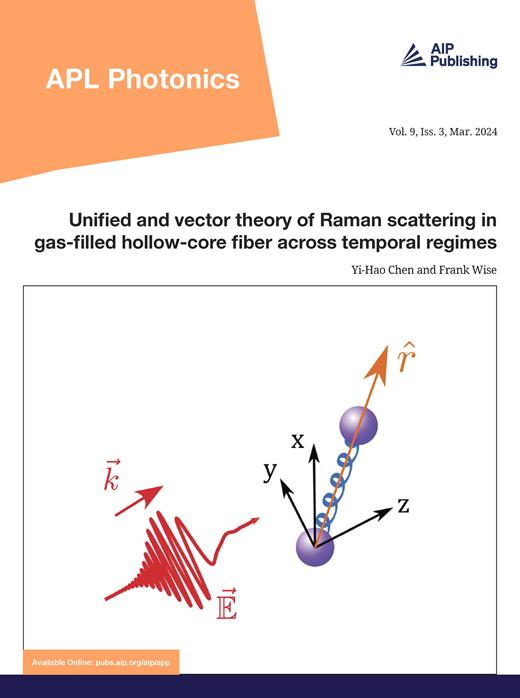Photoluminescent cooling with incoherent light
IF 5.3
1区 物理与天体物理
Q1 OPTICS
引用次数: 0
Abstract
Optical refrigeration using anti-Stokes photoluminescence is now well established, especially for rare-earth-doped solids where cooling to cryogenic temperatures has recently been achieved. The cooling efficiency of optical refrigeration is constrained by the requirement that the increase in the entropy of the photon field must be greater than the decrease in the entropy of the sample. Laser radiation has been used in all demonstrated cases of optical refrigeration with the intention of minimizing the entropy of the absorbed photons. Here, we show that as long as the incident radiation is unidirectional, the loss of coherence does not significantly affect the cooling efficiency. Using a general formulation of radiation entropy as the von Neumann entropy of the photon field, we show how the cooling efficiency depends on the properties of the light source, such as wavelength, coherence, and directionality. Our results suggest that the laws of thermodynamics permit optical cooling of materials with incoherent sources, such as light emitting diodes and filtered sunlight, almost as efficiently as with lasers. Our findings have significant and immediate implications for design of compact all-solid-state devices cooled via optical refrigeration.利用非相干光进行光致发光冷却
目前,利用反斯托克斯光致发光进行光学制冷的技术已经成熟,特别是对于掺稀土的固体,最近已经实现了低温制冷。光学制冷的冷却效率受限于光子场熵的增加必须大于样品熵的减少这一要求。在所有已证实的光学制冷案例中,都使用了激光辐射,目的是使吸收的光子熵最小。在这里,我们展示了只要入射辐射是单向的,相干性的损失就不会对冷却效率产生重大影响。通过将辐射熵概括为光子场的冯-诺依曼熵,我们展示了冷却效率如何取决于光源的特性,如波长、相干性和方向性。我们的研究结果表明,热力学定律允许使用非相干光源(如发光二极管和过滤阳光)对材料进行光学冷却,其效率几乎与使用激光相同。我们的发现对于设计通过光学制冷冷却的紧凑型全固态设备具有重要而直接的意义。
本文章由计算机程序翻译,如有差异,请以英文原文为准。
求助全文
约1分钟内获得全文
求助全文
来源期刊

APL Photonics
Physics and Astronomy-Atomic and Molecular Physics, and Optics
CiteScore
10.30
自引率
3.60%
发文量
107
审稿时长
19 weeks
期刊介绍:
APL Photonics is the new dedicated home for open access multidisciplinary research from and for the photonics community. The journal publishes fundamental and applied results that significantly advance the knowledge in photonics across physics, chemistry, biology and materials science.
 求助内容:
求助内容: 应助结果提醒方式:
应助结果提醒方式:


